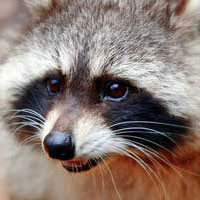Raccoons-Foxes-Coyotes-Bats VS. You and Your Pets
COVID-19, otherwise known as Corona Virus, has been running rampant around the globe. Almost every country has declared a state of emergency due to this virus with hundreds of thousands of cases reported and thousands of deaths reported worldwide; the numbers are growing exponentially. Using current and extrapolated numbers, the death rate reported for this virus is estimated (we don’t really know) to be 0.1% up to 3%. This strain of the Corona Virus originated in Wuhan, China and the initial cause of the virus is still unknown to scientists. There are many different forms of the Corona Virus that have been present around the world, but according to NBC News, this form of the virus was initially thought to be caused by horseshoe bats; so far all we know is that these bats carry a virus that closely resembles Covid-19. Scientists and Virologists are working diligently to determine the true cause of this virus in humans and are also working on creating an effective vaccine. For now, the Canadian government is urging everyone to practice social distancing, wash their hands, and stay home unless absolutely necessary.
Although there is currently a global panic about the Covid-19 virus, many people don’t panic or seem to even care that an estimated 59,000 humans die annually from the rabies virus. Rabies is transmitted from wild animals in 91% of reported cases; 30% of which are transmitted from raccoons. If you are a Torontonian, or live in the GTA, chances are you have seen a raccoon more than one time; this is because there are a very large number of raccoons in the city, possibly even more than there are humans. With litters ranging from 2-6 babies, the raccoon population is growing at a much higher rate than ours.
Many people don’t know this, but when humans contract rabies, the death rate is a whopping 99.9%. Luckily, the current presence of rabies in Toronto is quite low. According to Toronto.ca, we are federally, provincially, and locally listed as low risk after the constant decrease in cases due to the implementation of the Raccoon Rabies Control Program that began in 1989. In saying this, it does not mean that there is no risk at all. There are still cases of rabies in Ontario every year.
Rabies is considered a neurological virus because it gains access to your central nervous system through your outlying nerves. The symptoms of rabies start with a headache, fever, fatigue, and pain at the injured site. The incubation period for the onset of neurological symptoms of this virus is dependent on how far away the exposure site is from your brain; the further away it is, the longer it takes for neurological symptoms to set in. Once symptomatic, this viral infection is almost definitely fatal.
If you see a raccoon you suspect is ill, there are many key indicators that can help you identify if this raccoon has rabies or not. Always remember, keep your distance and do not approach a raccoon you suspect is ill. While most non-symptomatic raccoons will not unwarrantedly approach you, a rabid raccoon may attack you on purpose due to their neurological symptoms. Paralysis for rabid raccoons almost always starts in the hind legs, so if you see a raccoon that is having difficulty walking, this is a major sign of rabies. To accompany this symptom, the raccoon will make uncommon and strange noises, seem disoriented, be foaming at the mouth, have a strange discharge coming from its eyes, and over all appear to look sick. These same symptoms apply for all mammalian wildlife that can carry rabies including foxes, coyotes, and bats.
In Ontario it is mandated that all pets get vaccinated for rabies, but humans are not required to get this vaccine. It is only recommended for those of us who work in high risk jobs dealing directly with raccoons or other animals. That being said, there are still people in Ontario that own pets that are not vaccinated and although the rabies vaccine is highly effective, it is not fool proof. Rabies can be transmitted from a bite, scratch, or the saliva of a rabid raccoon (or other animal). Many people leave their pets unattended in the backyard, and most times it is hard to identify if your pet has come in contact with a rabid raccoon until it’s too late. Even if your pet is vaccinated, there is still a chance they can get rabies and or transmit the virus to you via their saliva by licking you, sneezing, or from their drool. Other forms of transmission include bites or scratches. Always keep a close eye on your pets when they are outdoors so that you can take action immediately if an incident were to occur.
If you or your pet have been bitten, scratched, or come in contact with a wild animal it is imperative you go to the doctor or vet immediately. There are post-exposure prophylaxis measures that can save your life even if you have not been previously immunized. For humans, this procedure consists of 5 different visits to the doctor. During the first visit they will administer one dose of the rabies vaccine, but also multiple vials of the rabies immune globulin (IM) directly into the contact site. Each additional visit consists of one does of the rabies IM. Also, depending on your immune response, you may be given an antibody serology anywhere from 7 to 14 days after this series of injections. If you have previously been immunized for rabies, the process only consists of two different shots on day 0 and day 3 after exposure. Now although these measures are designed to help those who have been exposed to rabies, they are not guaranteed. In fact, no doctors’ office carries these vaccines and IM’s on hand. After performing a physical analysis of the injured site, the doctors’ office is then required to send off these finding to your regional health department who will determine the risks of you contracting rabies and will only send out the vaccines and IM’s if you are in a higher risk category. We must also stress that treatment depends on the person and the exposure risk. Make sure that if you work in close proximity with raccoons that you are immunized for rabies; this could save your life.
If you are having raccoon problems in your house or on your property, please heed this warning; raccoons are unsafe animals. Anyone who is not a trained professional should not attempt to scare off or come in close proximity with a raccoon or any wild animal. Raccoons are disease ridden animals that can cause you serious physical harm and dire health issues. If you need help with a raccoon or have spotted a raccoon or other wildlife that you suspect may have rabies, call us at 416 HAWKEYE (416-429-5393). We have trained professionals that can deal with your problem effectively and permanently. We hope that everyone stays safe during this time of global pandemic with Covid-19, but also always remember to stay far away from wild animals and raccoons. As cute as they might be, please do not approach, attempt to feed, or try to pet a raccoon; these are wild animals and will respond as such.

















